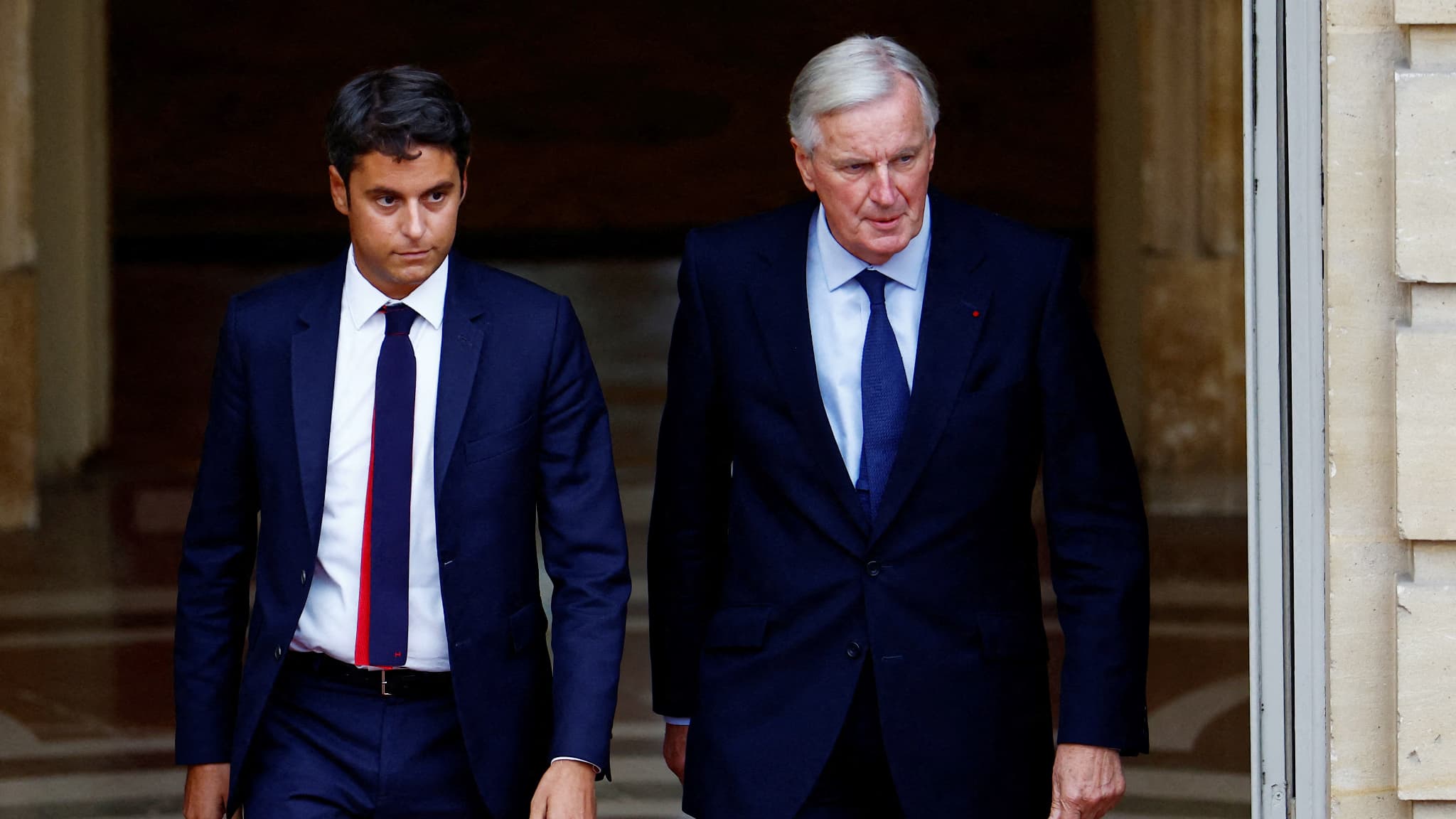Editor's Notes: "Censure Gouvernement: Une étape Vers La Défiance Ou Un Exercice Démocratique ?" have published today date". This topic is important to read because the issue of government censure is a complex one, with strong arguments on both sides.
In this guide, we will explore the arguments for and against government censure, and we will provide you with the information you need to make your own informed decision on this important issue.
|---|---|
FAQs
Government censure, a formal expression of disapproval, raises questions about its role in a democratic system. This FAQ section aims to clarify common concerns and present an informative overview.

Vers une société de confiance, de méfiance ou de défiance? | Le Devoir - Source www.ledevoir.com
Question 1: Is censure merely a symbolic gesture or does it have practical consequences?
Government censure is primarily a political tool that can have significant implications. By expressing disapproval, it can weaken the authority of the individual or organization being censured. This can lead to resignation from office, further investigations, or a loss of public trust.
Question 2: What are the potential risks associated with excessive censure?
While censure can serve as a check on power, excessive use can undermine democratic principles. It may inhibit open debate and suppress legitimate criticism, potentially leading to a culture of fear and conformity.
Question 3: How can the balance between government accountability and individual rights be maintained?
To ensure a fair and balanced process, clear standards should be established for initiating censure proceedings. Due process must be followed, including the right to respond to allegations and present evidence. Open and transparent hearings can foster accountability while respecting individual rights.
Question 4: What are the differences between censure and impeachment?
Censure is generally less severe than impeachment, which is a constitutional process reserved for serious offenses. Impeachment involves a formal trial and can result in removal from office. Censure, on the other hand, is typically a legislative action with no direct legal consequences.
Question 5: How does censure reflect the health of a democracy?
The ability to censure indicates a functioning system of checks and balances. When used responsibly, it can strengthen democratic institutions by holding officials accountable. However, it is important to avoid partisan or malicious use, which can undermine the integrity of the process.
Question 6: What are alternative mechanisms for expressing disapproval of government actions?
In addition to censure, there are other means for citizens to voice their concerns about government actions. These include public protests, petitions, and engagement in the electoral process. Each method offers unique opportunities for citizens to participate in decision-making and promote accountability.
In conclusion, government censure is a complex tool that can both strengthen and challenge democratic principles. By carefully considering the potential benefits and risks, it is possible to foster a system that enhances accountability while preserving individual rights.
Transitioning to the next article section...
Censuring a government can be both an act of defiance and a legitimate exercise of democratic power. Understanding the principles and practices of censure can help policymakers and citizens evaluate its implications.
Tip 1: Distinguish between censure and impeachment:
Censure is a formal expression of disapproval by a legislative body, while impeachment is a process leading to potential removal from office.
Tip 2: Consider the grounds for censure:
Censure can arise from a range of actions, including misconduct, policy failures, or violations of norms.
Tip 3: Evaluate the evidence and arguments:
Before censuring a government, it is crucial to carefully examine the evidence and arguments presented.
Tip 4: Assess the political consequences:
Censure can have significant political repercussions. It can damage the reputation of the government, polarize public opinion, and disrupt the functioning of democracy.
Tip 5: Consider alternative measures:
In some cases, less confrontational measures such as issuing a warning or demanding corrective actions may be more appropriate.
Tip 6: Respect the democratic process:
Censure should not be used as a tool for political gain or as an attempt to circumvent electoral outcomes.
Tip 7: Learn from past experiences:
Reviewing historical examples of censure can provide valuable insights into its potential effects and pitfalls.
Tip 8: Foster dialogue and reconciliation:
After a censure, it is important to focus on rebuilding trust and fostering dialogue between different political actors.
By following these tips, policymakers can strengthen the principles and practices of democratic government while promoting transparency, accountability, and peaceful transitions of power.
Censure Gouvernement: A Step Towards Defiance or a Democratic Exercise?
The motion of censure against the government is a crucial mechanism in a democratic system. It allows the parliament to hold the executive branch accountable and express its dissatisfaction with its policies. However, it also raises questions about the potential for abuse and the fine line between legitimate criticism and political maneuvering.
- Expression of Discontent: A censure motion provides a formal platform for the parliament to voice its disapproval of government actions.
- Political Leverage: It can be used as a tool to pressure the government to change its course or even force its resignation.
- Accountability and Transparency: It promotes transparency by bringing government actions under parliamentary scrutiny.
- Potential for Abuse: Censure motions can be subject to partisan manipulation or used to obstruct government operations.
- Democratic Safeguard: When used responsibly, it serves as a safeguard against executive overreach.
- Balancing Act: The key challenge lies in ensuring that censure motions remain a legitimate check on government power while preventing their misuse.
In conclusion, the motion of censure against the government walks a delicate line between expression of discontent and political maneuvering. It can be a valuable tool for accountability and transparency but also carries the risk of abuse. Striking the right balance requires careful consideration and responsible use within the framework of a democratic system.

"Renoncer à leur funeste projet": Attal appelle les oppositions à ne - Source www.bfmtv.com
Censure Gouvernement: Une étape Vers La Défiance Ou Un Exercice Démocratique ?
The motion of censure against the French government on October 20, 2023, has brought into sharp focus the delicate balance between the executive and the legislature in a democratic system. Supporters of the censure motion argue that it is a necessary step to hold the government accountable for its failures, particularly in the areas of economic policy and immigration control. They contend that the government has lost the confidence of the people and that a censure vote would send a clear message that it must change course.

Vers une motion de défiance à Pecq ? "Nous ne sommes informés de rien - Source www.notele.be
Opponents of the censure motion, on the other hand, argue that it is a dangerous and destabilizing tactic that could lead to political chaos. They maintain that the government has a legitimate mandate to govern and that a censure vote would undermine its authority. They also argue that the motion is politically motivated and that it is being used by the opposition to score cheap political points.
The motion of censure is a powerful tool that can be used to express the dissatisfaction of the legislature with the government. However, it is a tool that should be used sparingly and only in the most serious of circumstances. The decision of whether or not to support a motion of censure is a difficult one, and it is one that should be made carefully after weighing all of the potential consequences.
The motion of censure against the French government is a reminder of the importance of the balance of power between the executive and the legislature. It is a balance that is essential for the proper functioning of any democracy.



